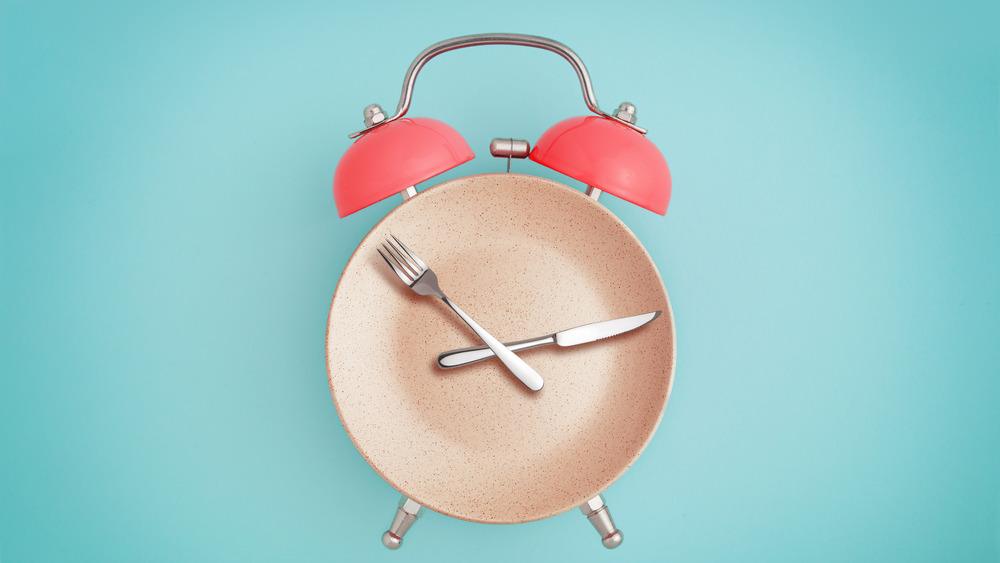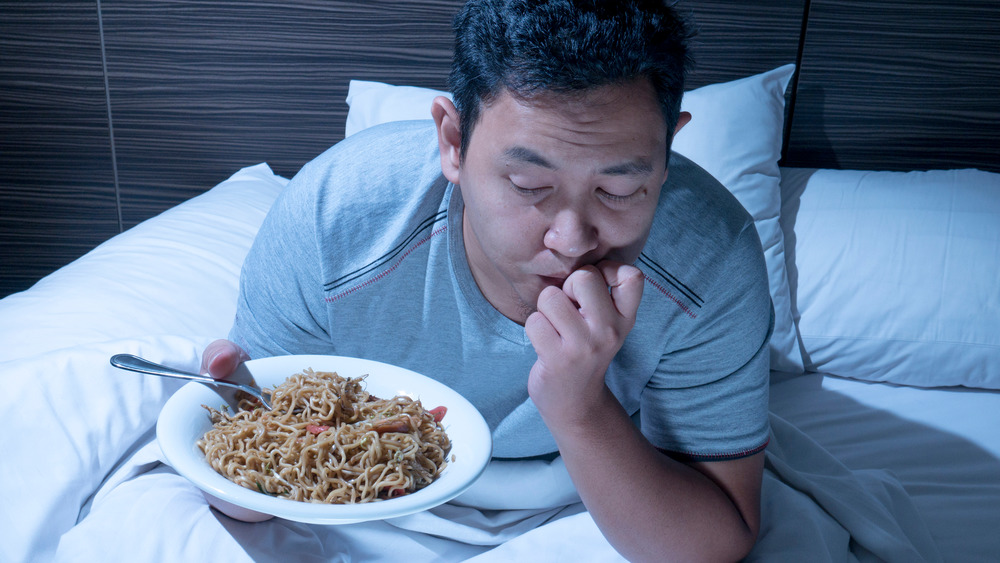This Is The Best Time To Stop Eating Every Day
We've all been there — eating dinners that linger long into the night, midnight snacks, and late-night sweet treats. We all occasionally eat late, but is there a time when we really should stop eating for the day? It turns out, setting up a kitchen curfew is a great way to attain the best digestion and health for your body. If you eat too close to bedtime, you're not going to be digesting your food properly and your body might be overworking while trying to rest. Registered dietitian Brigitte Zeitlin told Well + Good that it's best to stop eating at least two hours before bedtime.
How do you call it quits? Zeitlin recommends intermittent fasting for 12 hours. For example, you could eat from eight in the morning to eight at night, and then fast for the rest of the time that you're awake. This works well, especially if you're planning on sleeping by 10 p.m. or later. Customize this time so it fits your schedule. For example, if you go to sleep at 11 p.m., you can eat from nine in the morning and stop at nine at night, and then fast the remaining 12 hours. With this intermittent fasting schedule, Zeitlin says, you'll optimize your sleep and your digestion (via Well + Good).
How eating late affects your health
Eating too close to bedtime can interrupt your sleep. You might wake up a few times from indigestion, and can even wake up in the morning still feeling full and not wanting to eat breakfast. The consequences are feeling hungry and tired by lunchtime.
Three different studies have found that eating before bed may cause weight gain, including a 2014 study published in Nutrition Research, a 2013 study published in Appetite, and a 2013 study published in Sleep. The studies concluded that weight gain could be a result of eating more meals per day and going over the number of calories you need when you add late-night snacks.
Eating too close to bedtime can also affect your sleep quality. A 2011 study published in the Journal of Clinical Sleep Medicine found that eating heavily at night is associated with low sleep quality. It just might be best to call it quits in the kitchen about two hours before bedtime.


